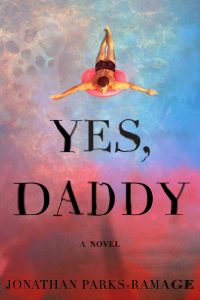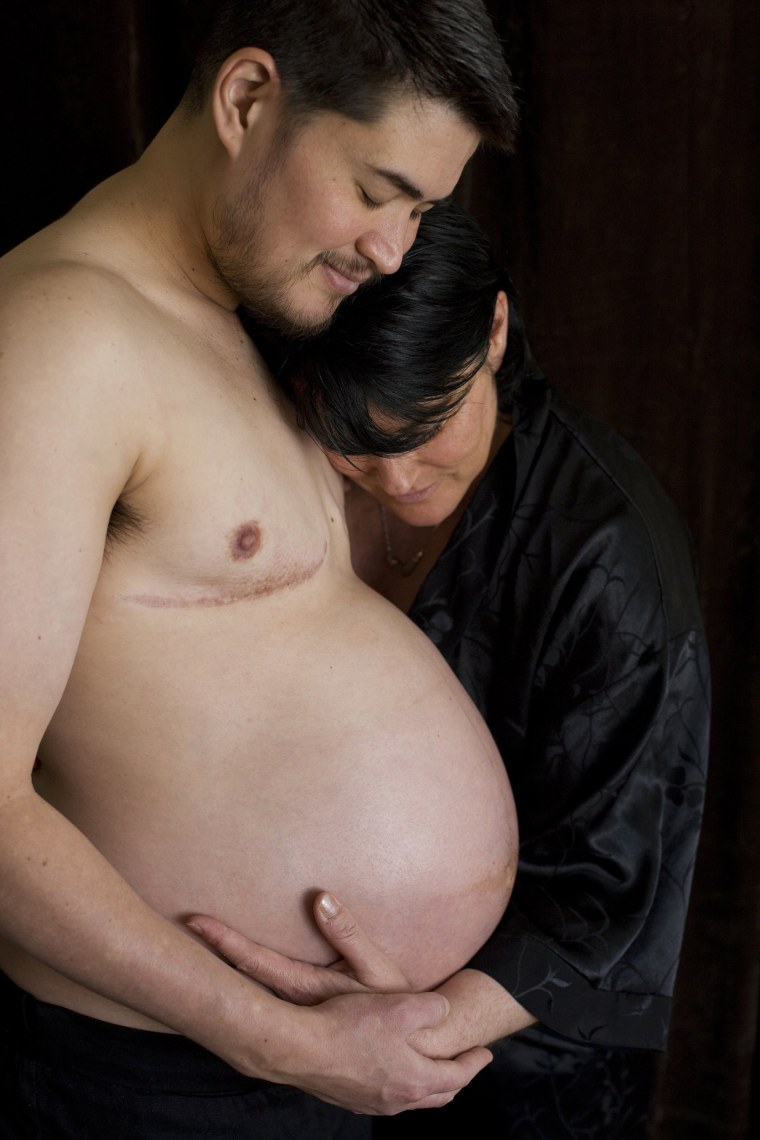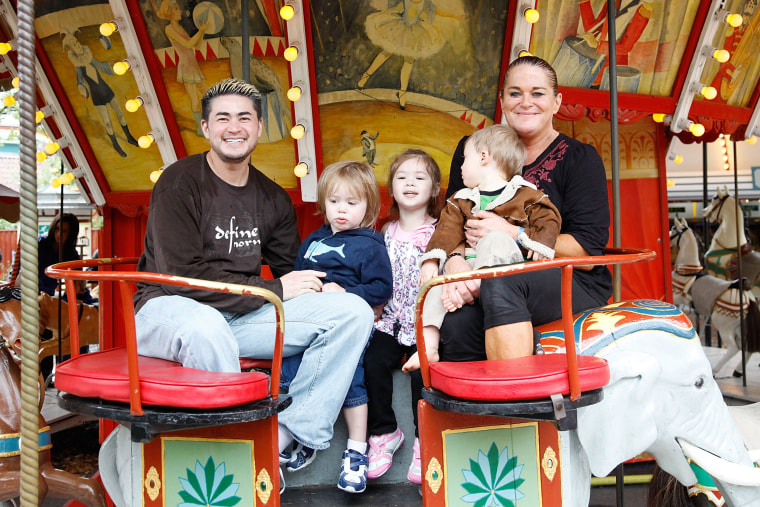Hatred of LGBT people now a key plank in Hungary’s authoritarian turn
During last month’s European championship soccer match between Germany and Hungary, the rainbow was everywhere on the German side. The German goalie wore a rainbow armband; the team’s fans donned rainbow wigs and waved rainbow flags.
All of this was directed at the opposing side: The Germans were protesting a new Hungarian law banning LGBTQ sex education and media directed at minors — a measure that has sparked outrage in Europe and elsewhere against Hungary.
While this may look like a PR mess for Hungary’s ruling right-wing Fidesz party, it’s in keeping with the right-wing populist playbook that Prime Minister Viktor Orbán has turned to over and over again to shore up his authoritarian rule. In the past few years, demonizing queer and trans identities has become a central part of Orbán’s campaign for maintaining his grip on power.
The criticism from Europe, if anything, bolsters the strategy. It allows the Hungarian government to tout its core ideological argument: that it is the Hungarian Christian family’s champion against a godless, globalist European Union.
“Hungary asserts its role as ‘defender of traditional values’ while mostly West European states get to claim moral superiority with no one paying any price for it,” says Cas Mudde, a professor at the University of Georgia who studies far-right politics.
The new anti-LGBTQ rules — which were tacked on at the last minute to a bill increasing penalties for sex crimes against children — are part of a broader slate of legal attacks on the queer community that strengthen Orbán’s regime, the only non-democratic government in the European Union.
Demagoguery is at the heart of the Fidesz political strategy. A series of boogeymen — Muslim migrants, Jewish billionaire George Soros, and now LGBTQ activists — have been used to rally Orbán’s base to the ballot box and justify the expansion of authoritarian state powers.
In this, Orbán is not alone. The demonization of out-groups is a key ingredient in the right-wing authoritarian recipe, one used by factions the world over to win power and undermine democracy once they’ve acquired it. It’s a pattern Americans should pay attention to, especially during the current moment of right-wing panic about the purported corruption of our youth.
Hungary’s persecution of LGBTQ communities, explained
The new Hungarian regulations on LGBTQ expression are broad. Among other things, they prohibit sex educators from instructing students about LGBTQ sexuality and ban television stations from airing content “popularizing” LGBTQ identity outside the hours of 10 pm to 5 am. The regulations also prohibit films or advertisements from representing same-sex physical acts or gender-affirmation surgery in materials targeted at individuals under 18.
But what counts as “popularizing” LGBTQ identity, and what sorts of art count as being targeted at kids? According to local media and human rights groups, the bill isn’t especially clear on these points — raising fears about censorship. RTL Klub, the country’s largest television channel, warned that “series like Modern Family would be banned, as would some episodes of Friends.”
No less troubling: By declaring LGBTQ programming harmful for children, the law dehumanizes queer couples and individuals, legally codifying the notion that their very existence threatens Hungarian society.
Defenders of the law are open about its hierarchical aims. An article in the Hungarian Conservative, a magazine supportive of the Orbán regime, denies that Friends specifically would be blocked by the new rules — but touts the bill’s efforts to “protect children’s natural and healthy sexual development” from the allegedly nefarious influence of gay propaganda.
“Protecting children does not end with stopping sex offenders, but should also include the protection from potentially harmful influences well until children are old enough to make the best decisions for themselves,” the article claims.
This bill is not a one-off. Since coming to power in 2010, Orbán has systematically undermined LGBTQ rights in Hungary. The most significant early move was a constitutional provision banning same-sex marriage enacted in 2012.
:no_upscale()/cdn.vox-cdn.com/uploads/chorus_asset/file/22686021/1233454424.jpg)
In recent years, the anti-LGBTQ campaign has intensified. In 2018, the government banned the teaching of gender studies in Hungarian universities. A government spokesperson told CNN at the time that they did it because “we do not consider it acceptable for us to talk about socially constructed genders, rather than biological sexes.” In May 2020, the government prohibited trans Hungarians from changing their gender on official government forms.
In December 2020, the government approved a constitutional reform package that strengthened the anti-LGBTQ constitutional provisions: It stated that the family is defined as being “based on marriage and the parent-child relation. The mother is a woman, the father a man.” The December legislative package also banned adoption by same-sex couples and abolished the Equal Treatment Authority, Hungary’s most important nondiscrimination agency covering LGBTQ rights.
The anti-LGBTQ policies of the past few years are not incidental to Fidesz’s ideology. A paper by Andrea Pető and Weronika Grzebalska, two scholars of gender and politics in Central Europe, identify the Hungarian government’s commitment to traditional gender norms as the “symbolic glue” that holds its overall ideology together, positioning social liberalism “as a symbol of everything that is wrong with the current state of politics.”
In the government’s narrative, the traditional Christian Hungarian family is under attack by nefarious globalist liberals who want to replace Hungarian mothers and fathers with immigrants. Defending the Hungarian nation means defending the family, defined exclusively as male-female pairings that produce more Hungarian children. The Orbán government is notoriously obsessed with the birthrate, passing tax and welfare policies specifically framed as incentives for native Hungarian women to have more kids.
The government attacks on LGBTQ identities flow directly from this conservative preoccupation with family and fertility, casting queer families as illegitimate, non-procreative entities.
“In a moral sense, there is no difference between pedophiles and those who demand [gay adoption],” László Kövér, the speaker of Hungary’s parliament, said in 2019. “Both objectify the child as a consumer good, and consider it a means of self-fulfillment.”
How social conservatism fuels Hungarian authoritarianism
Hungarians have long been more conservative than most other EU states. A 2019 Eurobarometer poll found that 61 percent opposed same-sex marriage and 72 percent opposed allowing trans individuals to alter government documents to match their gender identity. This fits a general European pattern, in which former communist states are on average more culturally right-wing than their Western European peers.
At the same time, there’s some evidence of recent movement in a more progressive direction. A 2021 Ipsos poll found that 59 percent of Hungarians today support same-sex couples’ adoption rights, compared to 42 percent in 2013. A plurality had even come to favor same-sex marriage (46 percent in favor versus 38 percent opposed).
These numbers suggest the recent anti-LGBTQ moves are less of a response to a public groundswell than a political play by the ruling party to elevate the issue — to wage a culture war against progressive ideas and activists as a means of activating the Fidesz base and solidifying Orban’s hold on power.
By definition, “populism” as a political style relies on a contrast between a virtuous people and a corrupt elite. In modern right-wing populism, both in Hungary and elsewhere, that corrupt elite is typically identified with minorities and socially liberal activists — groups positioned as subverting national traditions, attacking traditional morality, and destroying national character.
“Minority rights are rejected as threatening the majority’s rights to do what they please, and dignity and solidarity is only granted to those belonging to the restricted community of real patriots,” Pető and Grzebalska write in their article on the gender politics of right-wing populism. “The illiberal right is not so much trying to eliminate the progressive civil society but rather turn it into a bogeyman that governing elites can activate whenever they need to mobilize their supporters.”
For much of Orbán’s time in power, Muslim refugees were the principal villain in this kind of story. Orbán linked their entry with George Soros, a Hungarian-American Jewish billionaire, arguing that he was facilitating migration as part of a plot to destroy the country’s Hungarian and Christian character. The Islamophobic and anti-Semitic overtones were not subtle.
“We are fighting an enemy that is different from us. Not open, but hiding; not straightforward but crafty; not honest but base; not national but international; does not believe in working but speculates with money; does not have its own homeland but feels it owns the whole world,” Orbán said in a 2018 speech.
As the migrant crisis has receded, Fidesz has sought to inflame anti-LGBTQ sentiment (Soros remains a major villain in government propaganda). That the party is going into high gear now with its demagoguery is not surprising — there’s a national election next year. Coming off Hungary’s poor handling of Covid-19 and a scandal surrounding a leading Fidesz figure’s visit to a gay sex party, a play to rev up Fidesz’s socially conservative base by presenting them with yet another enemy to hate is unsurprising.
Now, it’s important not to equate social conservatism with authoritarianism. Opposing equal rights for LGBTQ individuals, while certainly illiberal, could well be supported by an electoral majority in Hungary.
But far-right governments like Orbán’s typically use populism in service of their authoritarianism: Attacks on minority groups are not merely electoral appeals but also justifications for power grabs that weaken democracy’s foundations.
By 2017, Fidesz and its allies had managed to seize control over roughly 90 percent of the media; since then, it has continued to apply pressure on the few free outlets that remain. The government uses tax and regulatory powers to punish businesses whose owners challenge Fidesz, passes laws making it difficult for human rights groups to operate, and changed school curricula to match Fidesz narratives.
Many of the anti-LGBTQ laws passed expand the state’s power to enforce ideological hegemony. In the name of fighting a phantom scourge, it has given itself new abilities to regulate education, media, and advertising — sometimes through vaguely worded provisions that could be enforced capriciously. In this sense, the anti-LGBTQ provisions aren’t merely cultural warfare but direct expansions of Orbán’s authoritarian reach.
This is not a uniquely Hungarian phenomenon: Authoritarian populists of both the right- and left-wing variety, in countries as diverse as Poland and Venezuela and Turkey, have used demonization of minorities and/or an allegedly corrupt elite to enact laws aimed at weakening their political opponents and revving up their base.
Closer to home, we’re seeing something similar afoot. Florida Gov. Ron DeSantis (R) recently signed a bill that would require professors at state-funded universities to fill out surveys describing the campus ideological climate, threatening budget funds if schools are deemed insufficiently open to right-wing ideas. Dozens of state legislatures have passed or proposed bills that regulate what can be taught in the classroom on similar grounds — a response to the allegedly corrosive threat of “critical race theory” on the US educational system.
These American bills are not directly inspired by Hungarian policies. But the affinities between right-wing populists in these countries are real, with many leading thinkers on the American right openly admiring Orbán’s willingness to wage culture wars, to the point where they’re willing to downplay his authoritarian abuses.
“What I see in Orbán is one of the few major politicians in the West who seems to understand the importance of Christianity, and the importance of culture, and who is willing to defend these things against a very rich and powerful international establishment,” Rod Dreher, a senior writer at the American Conservative who recently accepted a writing fellowship at the government-funded Danube Institute in Budapest, told me last year. “I find myself saying of Orbán what I hear conservatives say when they explain why they instinctively love Trump: because he fights. The thing about Orbán is that unlike Trump, he fights, and he wins, and his victories are substantive.”
This cultural affinity is effectively an intellectual shield for Orbán, with criticism of his anti-democratic tendencies portrayed by conservatives as a liberal smear.
“One suspects [allegations of authoritarianism are] just simple hatred of Christian conservatism, a fanatical projection of culture war antipathies to the near abroad,” Michael Brendan Dougherty writes in National Review, without a hint of irony.
The Hungarian government has assiduously courted the global intellectual right, setting up meetings between Orbán and prominent socially conservative thinkers from countries ranging from Canada to Israel. The goal is to construct an international traditionalist alliance, centering on Budapest, that aligns right-wing populist movements in Europe and beyond. The culture war is a useful tool for normalizing Hungarian authoritarianism globally, and for enlisting allies who are willing to overlook anti-democratic abuses when the right side of the culture war is perpetrating them.
It’s a strategy that, in many ways, has worked for Orbán — and shows just how vulnerable democracy is to far-right cultural demagoguery.


